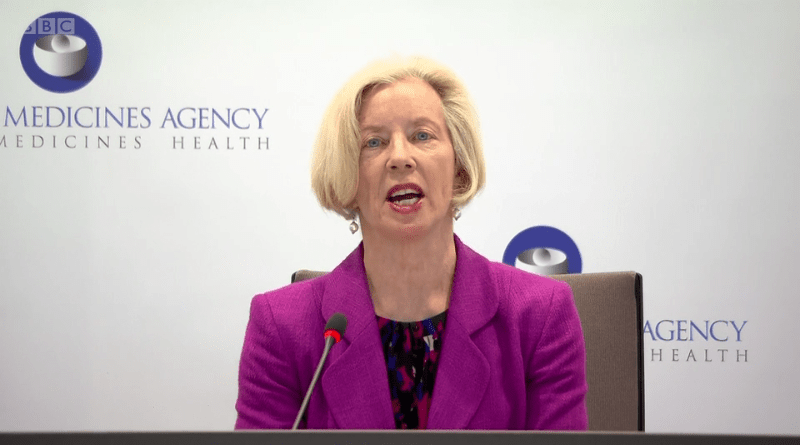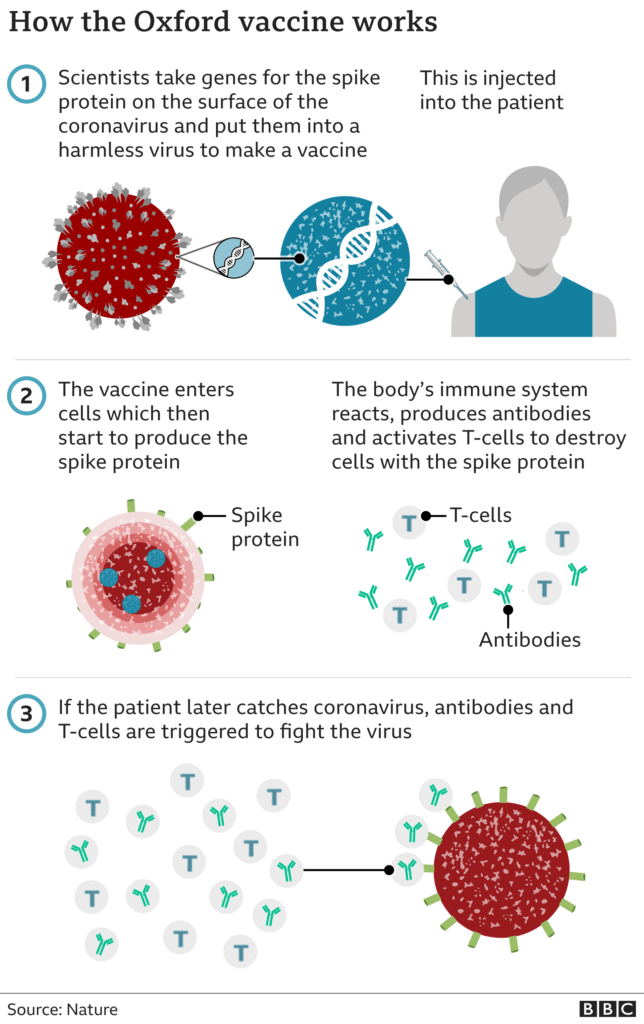7th April 2021
EU drug regulator: Unusual blood clot is 'very rare AstraZeneca side effect'
By BBC
[DISPLAY_ULTIMATE_SOCIAL_ICONS]

The EU's medicines regulator says unusual blood clots should be listed as a very rare side effect of the AstraZeneca vaccine for Covid-19.
After a study looking at 86 European cases, the European Medicines Agency (EMA) concluded the benefits of the vaccine outweighed the risk.
The report reflected data on 25 million Europeans administered with the jab.
The EMA could not list specific risk factors such as age or gender, but most blood clot cases were women under 60.
Separately, the UK's vaccine advisory body said that under-30s there were to be offered an alternative jab to AstraZeneca due to the blood clots issue. Some 79 people had suffered rare blood clots after vaccination by the end of March in the UK - 19 of whom had died.
And the World Health Organisation's advisory vaccine safety panel said on Wednesday that although a blood clot link was "plausible" it was "not confirmed" and the cases were "very rare" among 200 million people vaccinated with AstraZeneca globally.
There were two main elements to its report - the link with blood clots and how this could affect vaccination programmes.
The EMA had concluded there was a "possibility of very rare cases of blood clots combined with low levels of blood platelets occurring within two weeks of vaccination" with the AstraZeneca jab.
Most of the 86 cases studied in the European Economic Area (the EU, Iceland, Norway and Liechtenstein) up to 22 March were in women under 60. Eighteen were fatal.
But EMA executive director Emer Cooke said there was no available evidence of "specific risk factors such as age, gender, or previous medical history of clotting disorders".
On the safety side, she said: "Our safety committee... has confirmed that the benefits of the AstraZeneca vaccine in preventing Covid-19 overall outweigh the risks of side effects."
Ms Cooke added: "This vaccine has proven to be highly effective - it prevents severe disease and hospitalisation, and it is saving lives."
AstraZeneca has said its studies have found no causal link with blood clots.
Ms Cooke said that one "plausible explanation for these rare side effects is an immune response to the vaccine".
The condition is similar to one seen in people who have been treated with the drug heparin, a blood thinner used to prevent the formation of clots.
In some cases there has been a potentially dangerous immune-driven adverse reaction to the drug, leading to a condition called heparin-induced thrombocytopenia, or HIT.
The EMA's team concluded that a causal link between extremely rare blood clots and the Oxford-AstraZeneca jab was not just possible, but probable.
It will now be up to individual governments to make up their mind about who they would like to vaccinate, with what kind of vaccine.
Their decisions may depend on the access to alternatives. A clear vaccine roadmap is vital in paving the way out of the pandemic.
The EU needs to pump up the speed at which it's getting shots into arms, and is currently facing two major challenges, supply and public acceptance.
Mixed messages from European governments have fuelled vaccine hesitancy and restoring public trust requires transparency and consistency.
If an alternative to AstraZeneca is recommended for the majority of under 30 year olds in the UK, then many may ask, why not in the Netherlands, Germany or Sweden?
While the picture is evolving and contested, many countries are battling a third wave, along with public pressure to reopen society.


TO RECEIVE NEWS NOTIFICATIONS And Covid NEWS VIA WHATS APP PLEASE SAVE OUR NUMBER AND SEND US A MESSAGE AT 7584896261 AND WE WILL ADD YOU TO OUR LIST
[DISPLAY_ULTIMATE_SOCIAL_ICONS]





